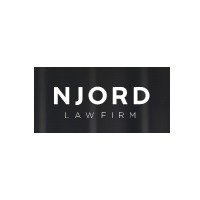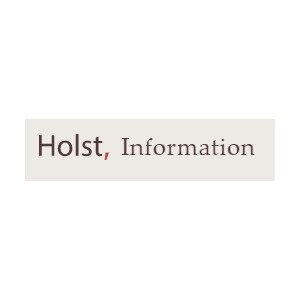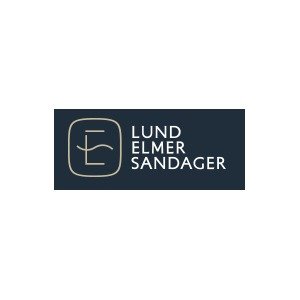Best Corporate & Commercial Lawyers in Copenhagen
Share your needs with us, get contacted by law firms.
Free. Takes 2 min.
List of the best lawyers in Copenhagen, Denmark
About Corporate & Commercial Law in Copenhagen, Denmark
Corporate & Commercial law in Copenhagen encompasses the legal rules and frameworks that govern businesses, companies, and commercial transactions within Denmark’s capital city. Copenhagen is a major hub for Danish and international businesses, offering a dynamic environment for startups, established corporations, and foreign investors. Corporate & Commercial law covers company formation, governance, contracts, mergers and acquisitions, intellectual property rights, compliance, and dispute resolution, among other key topics. Denmark’s legal framework is considered stable, transparent, and business-friendly, making Copenhagen an attractive location for commercial activities.
Why You May Need a Lawyer
There are numerous situations in which individuals or businesses may require the guidance of a Corporate & Commercial lawyer in Copenhagen. Some of the most common scenarios include establishing a new company or subsidiary, drafting or reviewing commercial contracts, handling mergers or acquisitions, protecting intellectual property, resolving shareholder disputes, dealing with employment matters at the executive level, ensuring compliance with Danish business regulations, dealing with bankruptcy or restructuring, and managing cross-border transactions. A specialist lawyer can advise on local legal requirements, negotiate with stakeholders, minimize risks, and help resolve disputes efficiently.
Local Laws Overview
The Danish legal system is based on civil law traditions, with specific statutes and codes governing Corporate & Commercial activities. Key legal areas include:
- Company Law: The Danish Companies Act regulates the formation, operation, and dissolution of companies such as Aktieselskab (A/S - public limited company) and Anpartsselskab (ApS - private limited company).
- Contract Law: Danish contract law provides a high degree of freedom, but certain consumer, employment, and commercial agreements must adhere to mandatory rules.
- Mergers & Acquisitions: Transactions are governed by statutory rules and often require notifications to competition authorities.
- Competition Law: Denmark enforces EU and local antitrust laws to prevent anti-competitive practices.
- Intellectual Property Law: Trademark, patent, and copyright protections are robust and harmonized with EU legislation.
- Compliance and Regulation: Businesses must comply with tax, anti-money laundering, and data privacy laws (including the EU’s General Data Protection Regulation).
Local authorities, such as the Danish Business Authority and the Danish Competition and Consumer Authority, play key roles in regulatory oversight in Copenhagen.
Frequently Asked Questions
What are the main types of business entities in Denmark?
The most common business forms are the private limited company (ApS) and the public limited company (A/S). There are also options like partnerships (I/S), sole proprietorships, and branches of foreign companies.
How long does it take to register a company in Copenhagen?
Company registration through the Danish Business Authority is typically efficient, often taking just a few days, provided all documentation is in order.
What are the minimum capital requirements for forming a company?
Currently, a private limited company (ApS) requires a minimum share capital of DKK 40,000, while a public limited company (A/S) requires at least DKK 400,000.
Are there any restrictions on foreign ownership of companies in Denmark?
Denmark generally permits 100 percent foreign ownership of Danish companies, with some exceptions in specific regulated areas.
How are business contracts enforced in Denmark?
Danish law recognizes and enforces freely negotiated contracts. Disputes are generally resolved through the Danish courts or arbitration, and judgments are enforceable if proper procedures are followed.
What should I consider in cross-border transactions?
Key considerations include contractual jurisdiction, choice of law, tax implications, and compliance with both Danish and EU regulations. Engaging a lawyer with cross-border expertise is recommended.
What are my responsibilities regarding data privacy?
Businesses operating in Copenhagen must comply with the EU’s General Data Protection Regulation (GDPR), which sets strict requirements for collecting, storing, and processing personal data.
How is intellectual property protected?
Intellectual property can be protected through Danish registrations for trademarks, designs, and patents. Denmark is also party to international agreements, making protection possible across multiple jurisdictions.
How are shareholder disputes handled?
Disputes among shareholders can be resolved through negotiation, mediation, or by resorting to legal proceedings, depending on the company's articles of association and shareholder agreements.
What are the typical steps in a merger or acquisition?
Typical steps include due diligence, negotiating and drafting agreements, obtaining shareholder and regulatory approvals, and registration with the Danish Business Authority.
Additional Resources
If you need further information or assistance, consider these helpful resources and authorities in Copenhagen and Denmark:
- Danish Business Authority (Erhvervsstyrelsen) - Handles company registration and corporate filings.
- Danish Competition and Consumer Authority - Oversees competition and anti-trust matters.
- Danish Patent and Trademark Office - Manages IP rights registration and protection.
- Copenhagen Chamber of Commerce - Offers support and information for businesses.
- The Danish Courts (domstol.dk) - Information on court procedures and legal processes.
- The Danish Bar and Law Society - Directory of qualified lawyers in Copenhagen and across Denmark.
Next Steps
If you believe you need legal assistance in Corporate & Commercial matters in Copenhagen, start by identifying your specific needs and gathering relevant information or documentation. Next, research lawyers or law firms with expertise in your area of concern and reach out to arrange a consultation. Many firms in Copenhagen offer initial guidance or case assessments. Prepare your questions and objectives clearly, and be ready to discuss timelines, costs, and strategies. Consulting with a legal specialist will help you navigate the complexities of Danish corporate and commercial law with confidence and ensure your interests are protected.
Lawzana helps you find the best lawyers and law firms in Copenhagen through a curated and pre-screened list of qualified legal professionals. Our platform offers rankings and detailed profiles of attorneys and law firms, allowing you to compare based on practice areas, including Corporate & Commercial, experience, and client feedback.
Each profile includes a description of the firm's areas of practice, client reviews, team members and partners, year of establishment, spoken languages, office locations, contact information, social media presence, and any published articles or resources. Most firms on our platform speak English and are experienced in both local and international legal matters.
Get a quote from top-rated law firms in Copenhagen, Denmark — quickly, securely, and without unnecessary hassle.
Disclaimer:
The information provided on this page is for general informational purposes only and does not constitute legal advice. While we strive to ensure the accuracy and relevance of the content, legal information may change over time, and interpretations of the law can vary. You should always consult with a qualified legal professional for advice specific to your situation.
We disclaim all liability for actions taken or not taken based on the content of this page. If you believe any information is incorrect or outdated, please contact us, and we will review and update it where appropriate.
Browse corporate & commercial law firms by service in Copenhagen, Denmark
Copenhagen, Denmark Attorneys in related practice areas.

















